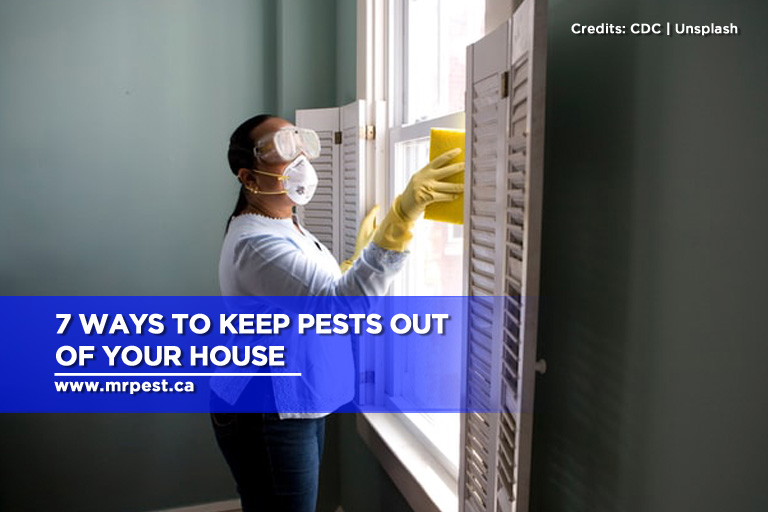You may clean your house from top to bottom on a regular basis and believe it is spotless. That’s not the case. According to studies, an average home has approximately 100 different types of flies, spiders, beetles, and other bugs. Even affluent communities are known to have higher quantities of pests than the average residence.
However, before you get too worked up, keep in mind that the majority of these pests are non-destructive and do not transmit any diseases that could infect you or your family. In fact, some of them are so small that we have trouble seeing them.
There are a variety of reasons why these bugs find their way into your houses. Experts feel that socio-economic aspects are a larger contributing factor than hygiene. Houses with elaborate gardens are more likely to attract birds, lizards, and other pests.
Pests to Watch out For
Have you ever observed pests in your home and been puzzled as to what they were? We’re frequently concerned about whether they’ll hurt ourselves or our belongings. Identification of insects can be difficult. It’s hard to know every bug because there are so many of them. That’s why we’ve put up a list of the most common pests you’re likely to encounter in your house.
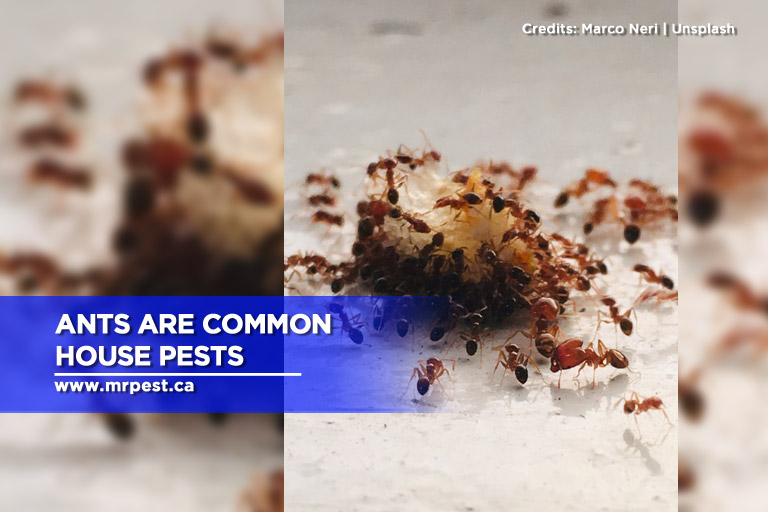
- Ants
Black carpenter ants, odorous house ants, and thief ants are some of the most prevalent ants in Canada. It may be difficult to eradicate these ants after they have established a colony. Knowing what kind of ants are invading your home will help you figure out how to get rid of them. Ants gain access to your home via cracks in the walls. Some ants spread diseases, while others contaminate food. Ants are a nuisance in any case, and it’s important to get rid of them.
- Bedbugs
Bed bugs are oval-shaped insects with a size range of 4mm to 5mm in length. They’re usually rust-brown or a darker red-brown colour. They can easily go undetected because they’re flat. They normally emit a sweet yet disagreeable odour once they’ve overtaken a space.
- Bees
Bees prefer to dwell in hives or nests. While they are not aggressive and only sting when threatened, they contain barbed stingers that can induce serious allergic reactions in some people. Pollen and nectar from numerous flowering plants make up a bee’s diet. So, if you have a flower-filled garden, there’s a good possibility you have bees.
- Cockroaches
The majority of cockroach species in Canada have wings, yet they are unable to fly. When you find traces of cockroach feces, you know you’ve got a problem. Although each cockroach species’ appearance varies, they most likely resemble coffee grounds or ground pepper. Cockroaches have also been shown to cause allergy reactions in roughly 12% of the population who have no known sensitivities. Inhaling the feces of a cockroach might cause asthma flare-ups or even lead to the development of asthma.
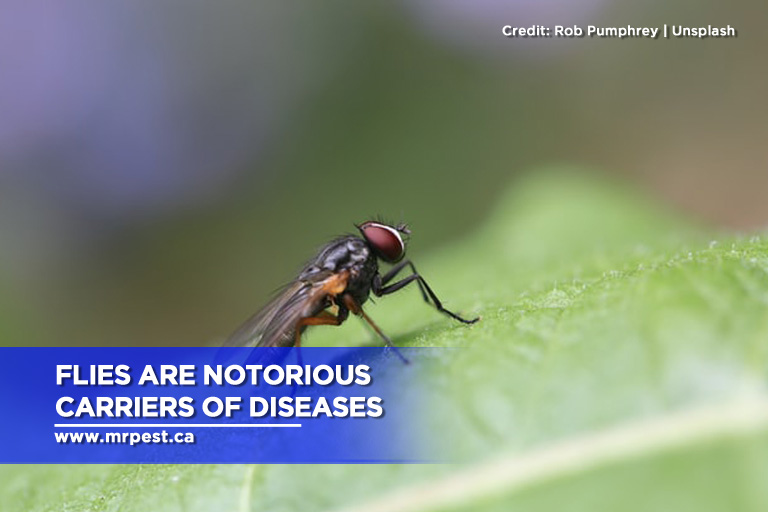
- Flies
Between 6 and 8 weeks, a pair of flies can produce up to 1 million offspring. Because flies always congregate near food sources, it’s best to cover your food or keep it in sealed containers at all times. Flies can swiftly migrate from one source to another. Always remember to take precautions right away because they’re known to transmit more than 100 different diseases.
- Mites
Mites can survive in practically any type of habitat. Some mites go unnoticed, while others produce itching, redness, and allergic reactions. Because of their small size and propensity to flourish in close quarters, it’s difficult to detect their presence unless there’s a full-fledged infestation.
- Rodents
Rodents are most known for causing the Black Death which led to millions of deaths in the 1300s. While the Black Death is no longer as much of a threat as it once was, keeping rodents at bay is still important since they are carriers of various other diseases, like the Hantavirus, which can be fatal.
7 Ways to Keep Pests Away
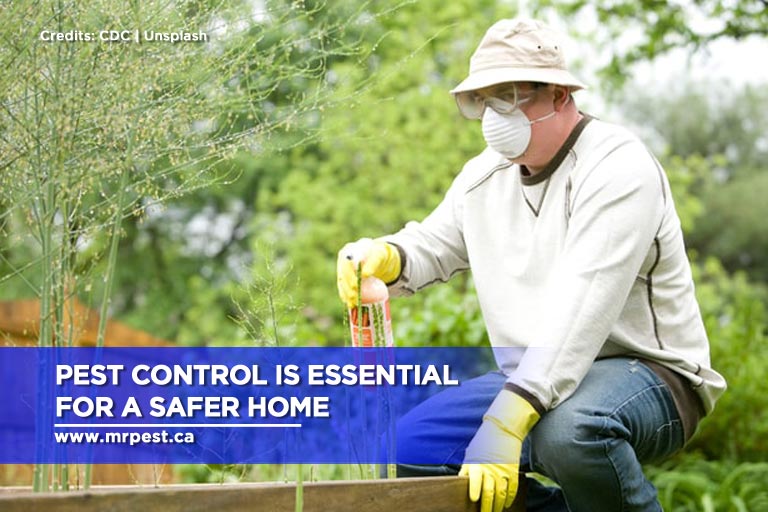
Pests do not belong in our houses, that is something everyone can all agree on. They’re a pain to deal with, and they’re also carriers of dangerous diseases. This is why pest control is so important and why you need to know how often you should do pest control. Because bugs can be dangerous, you must perform pest control on a regular basis.
Here are some ways on how to control pests in your home:
- Sealing up cracks and openings in the house
Insects can be kept at bay by properly sealing your doors. Examine your entryways thoroughly to see if there are any holes or gaps. Bugs can be kept out of your home by using aluminum thresholds or door sweepers. Also, consider installing screen doors if you frequently keep your doors open to allow for natural circulation.
- Regular kitchen cleaning routine
A huge reason why bugs are attracted to our homes is the constant supply of food leftovers or crumbs. Immediately wipe away food spillage or crumbs to prevent pests from making food trails to be followed by the rest of the colony. Vacuum regularly so you’ll be able to get those unseen food crumbs.
- Drying damp areas in and out of the house
Pests can successfully infiltrate through damp surfaces or water storage containers. Pests aren’t just seeking something to eat. They’re also on the lookout for water. Cover any prospective water sources after you’ve covered their potential food source.
- Regularly prune plants
Trees, plants, roofs, and gutters should all be cleaned of debris. Some pests, such as mice, will build nests in these locations. When a certain portion of a plant comes into contact with any element of your home, it becomes a possible access point. Pruning allows you to remove that access point, keeping pests at bay.
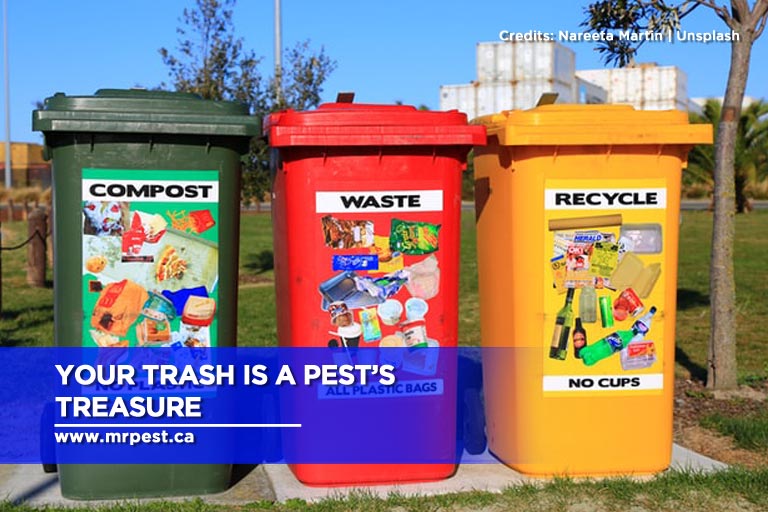
- Storing the trash properly
Your garbage becomes a treasure trove for pests. To keep them from rummaging through your trash, keep it secure and properly stored and disposed of. Food waste should always be disposed of in the kitchen trash can, not in other bins throughout the house. Invest in trash cans with tight-sealing lids to keep out any little pests that may pass through.
- Inspect attic vents
Regularly inspect attic vents for any flaws that could allow pests to enter. We often neglect the state of our vents because they are inaccessible. Over time, screens can develop minute holes, and gutters can become clogged with falling leaves. These can provide shelter and protection for unwelcome bugs and vermin.
7 Natural remedies to keep pests away
Pests will always find a way into your home, no matter how warm or chilly it is. If you’ve noticed evidence of pest invasion in your house, you’ve probably already considered strategies to get rid of them. However, the good news is that pest control does not always necessitate the use of chemicals. In fact, you may already have some of these pest control home remedies in your pantry.
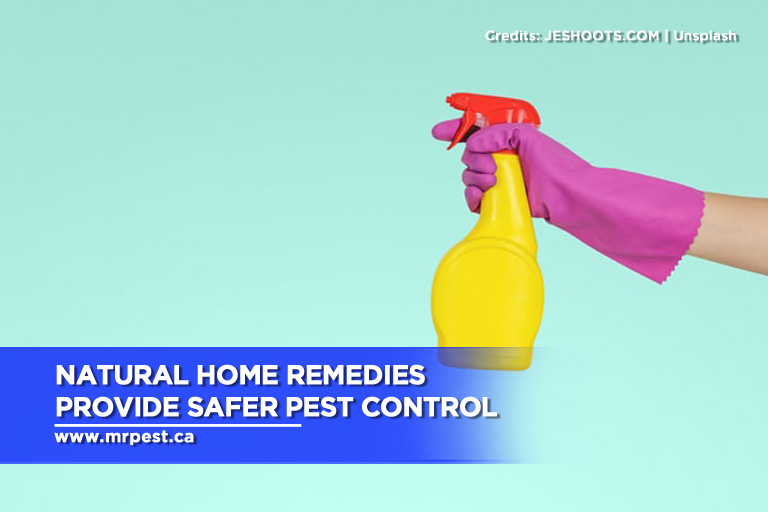
- Peppermint Oil
You may have observed a recent increase in the popularity of essential oils and wondered what essential oils keep bugs away. Peppermint oil is first on the list. This sort of oil has a strong odour that bugs find offensive. Insects and animals will avoid your home if you use this oil. You can either apply at least 5 drops of the oil to a cotton ball and place it in a strategic spot where entry is possible. You may also prepare a peppermint solution by mixing oil and spray together.
- White Vinegar
You may always wipe your table or countertops with white vinegar after clearing up some food splatters. Essentially, wiping down with vinegar has the purpose of erasing signs of the chemical trail. Ants, for example, leave a pheromone trail behind them for other ants to follow. They won’t be able to entice other ants into your home if this trail scent is gone.
- Citrus peels
Citrus peels have a nice scent, making them a good natural pest control option. Citrus peels will repel spiders, ants, and mosquitos. It’s as simple as rubbing the peels on areas where insects are known to congregate. A quick citrus scrub can benefit areas like doors, windowsills, and countertops.
Using Pesticides to Keep House Pests Away
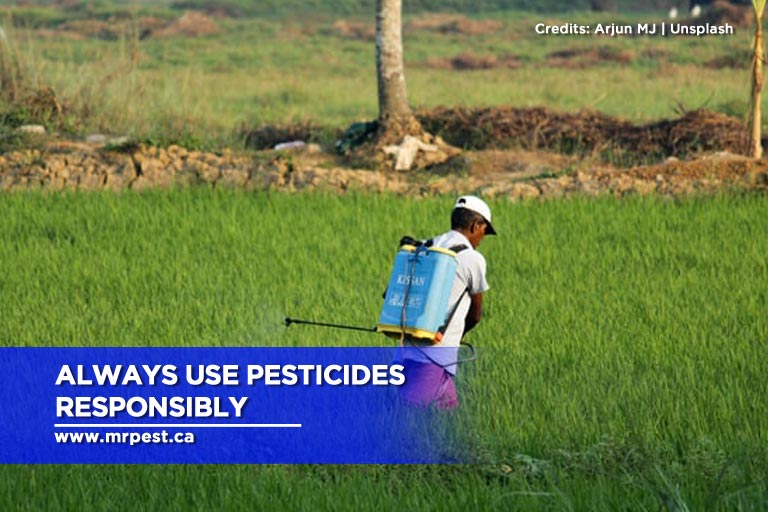
A pesticide is any item that can be used to manage, prevent, kill, inhibit, or repel pests, whether natural, organic, or manufactured. Pesticides are generally harmful to the environment and to humans. So when you decide to use pesticides, make sure you really need them and that you’re using them properly.
Before you use any pesticide, make sure that the insect you’re trying to get rid of can only be removed using pesticides. It’s also a good idea to look into the root of your problems to make sure they’re not caused by any other factors. People frequently misuse pesticides because they fail to recognize the source of the problem. Keep in mind that pesticides may not always completely eliminate pests.
Pesticides have been outlawed in a number of countries. In Ontario, for example, pest control should be limited as much as possible to natural methods or less toxic pesticides. To protect Ontarians from undue danger, the province has banned the cosmetic use of pesticides, allowing only a small number of low-risk pesticides to be used to control weeds and pests in lawns and gardens. To guarantee the safety of its residents, pest control in Toronto has also restricted pesticide use.
Make sure you’re using the proper tools and protective gear when applying pesticides. Gloves, eye protection, and a long-sleeved shirt are the basic safety gear used to reduce chemical exposure. Always examine the weather conditions before using pesticides to avoid cross-contamination.
Pesticides are extremely effective, and you will see results almost immediately. However, you must keep in mind that by using it, you are reducing both its environmental and human impact. Use pesticides with caution.
Because pesticide use can be dangerous, you need to hire an expert to do the job for you. It’s always better to err on the side of caution than to take a chance on worsening the problems. Make your homes safer to live in by investing in proper pest control strategies. Contact Mr. Pest at 705-739-7378 (PEST) to book an appointment.

